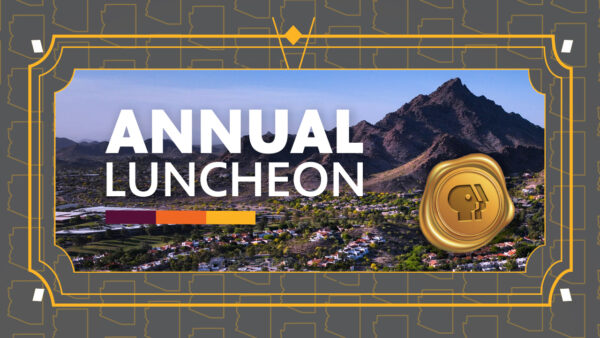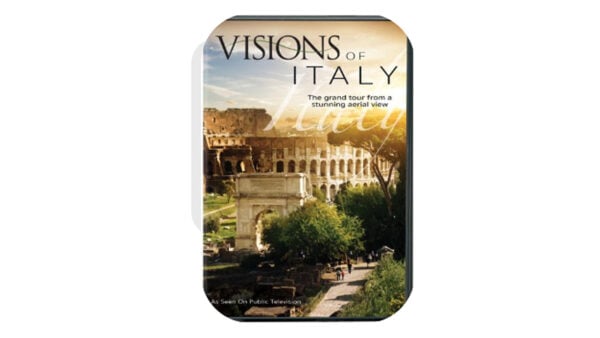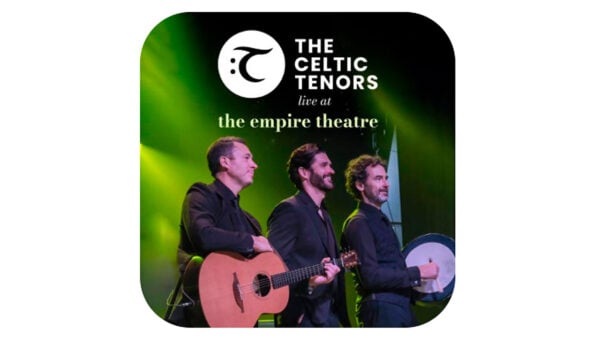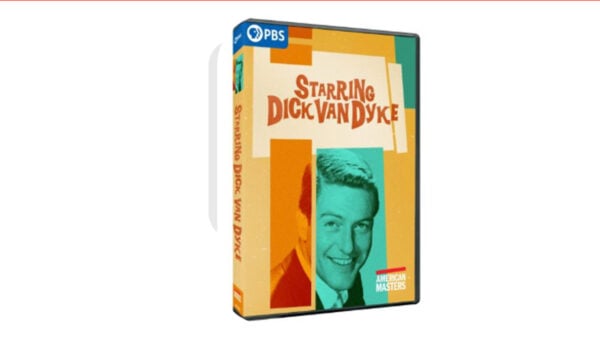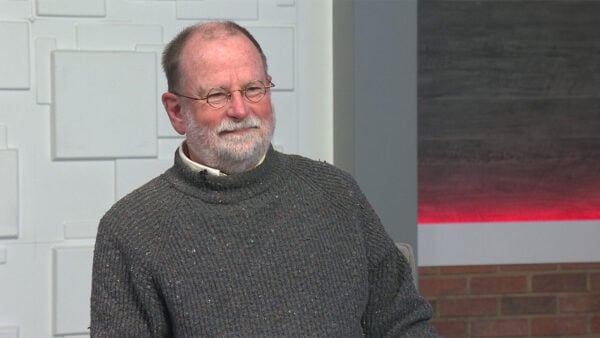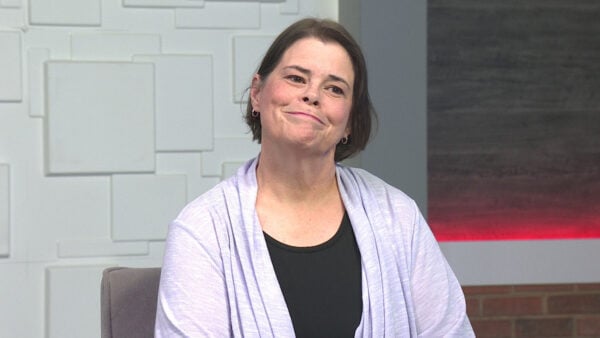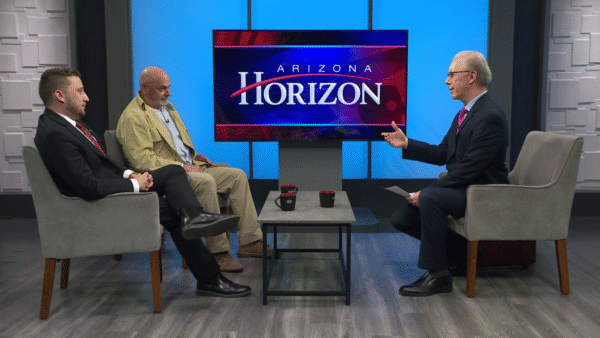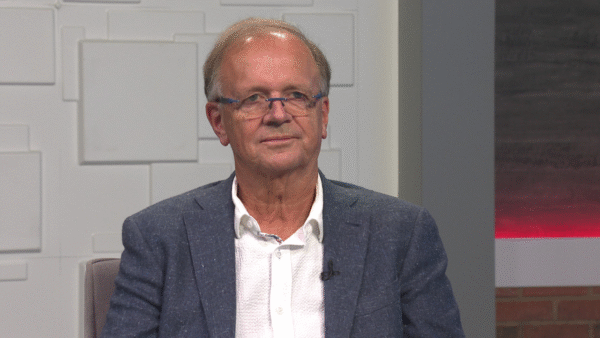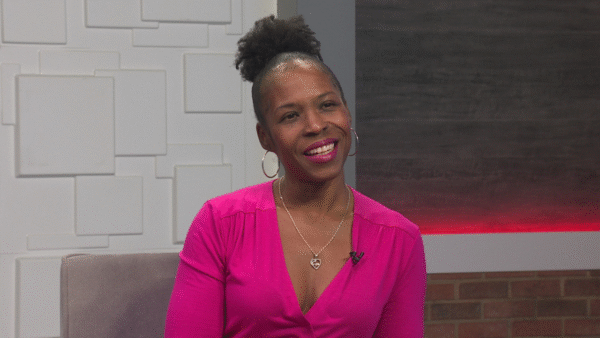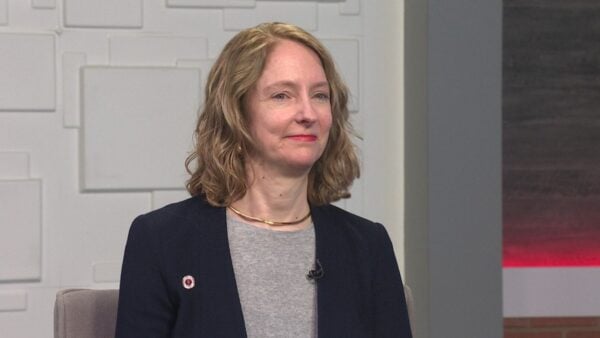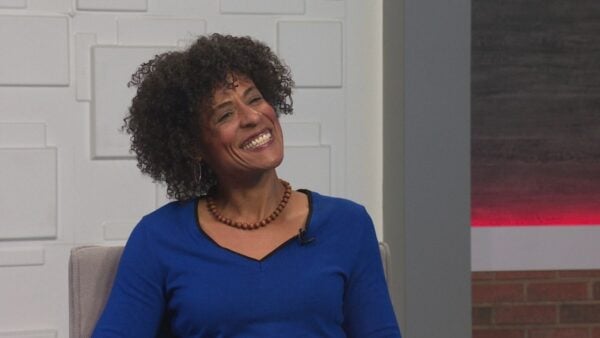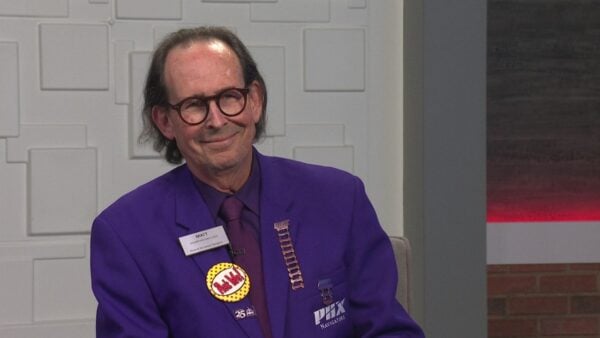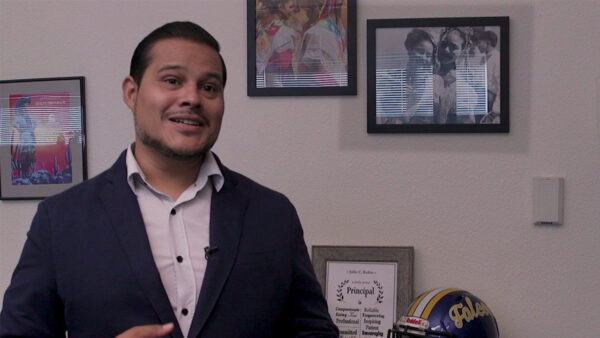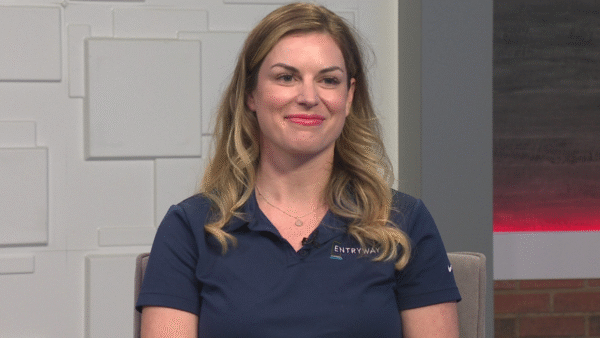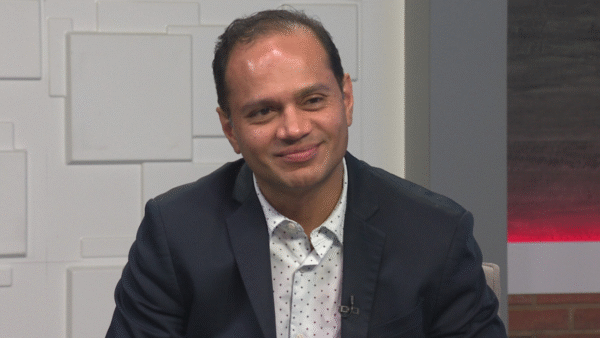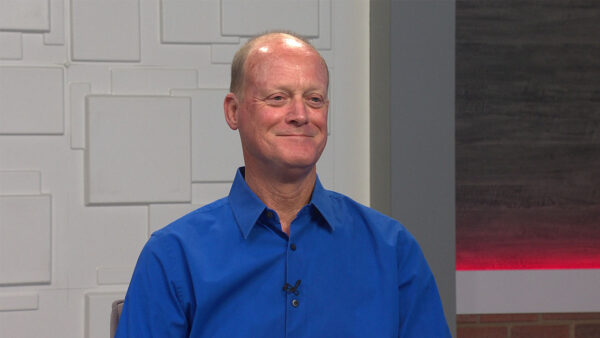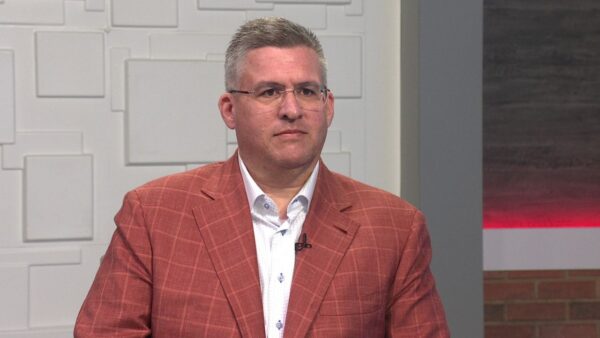The Phoenix Symphony and Phoenix Symphony Chorus are presenting Haydn’s “Nelsonmesse,” bringing to local audiences a piece the chorus performed at Carnegie Hall in New York City last spring. Tito Muñoz, the symphony’s Virginia G. Piper music director, will discuss the upcoming concert.
Ted Simons: Tonight's edition of Arizona Artbeat looks at the Phoenix Symphony and Phoenix Symphony Chorus as they prepare to present Haydn's Nelsonmesse, a piece that some critics consider Haydn's greatest single composition.
Ted Simons: Here now to discuss the upcoming concert and the Phoenix symphony chorus is Tito Munoz, the Phoenix Symphony's Virginia G. Piper music director. Good to have you back, nice to see you.
Tito Munoz: Nice to be back.
Ted Simons: Haydn's Nelsonmesse. Talk to us more about this piece.
Tito Munoz: Sure. It's one of Haydn's -- well people consider it his greatest work. It was in his later period of his life, it was a few masses that he wrote. He wrote quite a few masses, under the auspices -- it got the name lord Nelsonmesse, it wasn't his title. He called it mass in troubled times, that was his title of it because it was during a pretty bad time during Napoleon's reign and conquering Austria but that week, admiral Nelson had a victory that week and so it sort of got the name lord Nelson mass because of that.
Ted Simons: Describe the music. Is it accessible, tuneful, a little challenging?
Tito Munoz: Haydn is sort of the height of the classical era of composition, one of the greatest pieces. It is certainly accessible in every way. It's fiery, it has a lot of passion, it has four vocal soloists and they have virtuosic lines that that sing, it's really a wonderful, wonderful piece. And the Phoenix symphony chorus performed it at Carnegie hall last year, they were invited to participate in a festival.
Ted Simons: How did it go?
Tito Munoz: It went really well. I was at the performance with the New York orchestra but they performed under our chorus master.
Ted Simons: Talk about the Phoenix symphony chorus. I hear the chorus is made up of volunteers?
Tito Munoz: It's completely volunteer. It's about 150 members. It was founded in 2001. Actually, our associate conductor at the time, Robert Moody, the conductor of the Arizona music fest in north Scottsdale, he founded the chorus. It was his brainchild. And it's sort of the tradition in America of volunteer chorus, symphony choruses; we have something very special in the United States of America. Our folks in Europe know about it. Usually, it's professional choirs that they have in Europe. They know we have this wonderful long tradition of amateur choruses.
Ted Simons: Is it a tradition that survives or is the Phoenix chorus a bit unusual?
Tito Munoz: It very much survives. Orchestras all over the country have it. Not every orchestra but a lot of them and one of the most famous ones, the one that holds our nationalistic pride is the Atlanta symphony chorus, a very, very well-known with Robert Shaw and so that's sort of the tradition that we aspire to.
Ted Simons: So with that in mind, how does the Phoenix chorus stack up against peer groups?
Tito Munoz: They're fantastic. I was really excited when I was up for the job here and I found out that we had a symphony chorus and that we are doing -- are able to do these kinds of pieces. It's really, really wonderful.
Ted Simons: Is that the chorus at Carnegie hall, correct?
Tito Munoz: That is them at Carnegie hall.
Ted Simons: Looking pretty good up there.
Tito Munoz: They are looking pretty good. They're looking very happy.
Ted Simons: Did that experience -- going to Carnegie hall, it's an old joke but playing there is a huge -- it's got to be a huge thrill. How did it impact the chorus?
Tito Munoz: Any kind of touring for any group is really, really special because not only is it, of course, Carnegie hall, which is an incredible place, and it's New York City, which is an incredible place and it's the New York audiences which are very discerning so they know what's good and what's not and they were really, really receptive. But also, when you travel together as a group like that and you experience and have experience together it really boosts morale and makes for an even better social experience for the chorus and, of course, that affects the music making.
Ted Simons: As far as the chorus performing with the symphony, how often does that happen?
Tito Munoz: That happens generally about five times per year. They exclusively perform with us. And they are utilized in many different guises. Sometimes, for example, we have had Andrea Bocelli as a guest and they've sung for those concerts. The holiday pops. We do an opening night or a second classics week and have a whole concert that features the chorus. And so they really do have a lot of opportunities to perform.
Ted Simons: And because it's a volunteer, you've got to kind of keep track of their schedules as well I would imagine. Are you tempted sometimes to ask them to do more than you should?
Tito Munoz: Well, sometimes, we do. I mean, this week, for example, we do have a daytime concert on Friday. And because it is a volunteer chorus, they do have day jobs so they would have to ask for time off from work which they all agreed to do for this concert, which is really nice of them, but generally speaking, we accommodate their schedule for sure.
The Nelsonmesse performance by the Phoenix symphony, give us dates and times.
Tito Munoz: We've got a Friday morning at 11:00 a.m., a Friday night at 7:30 and we have Saturday night at 7:30 all at symphony hall. 7:30 or 8:00, downtown.
Ted Simons: And as far as -- this is part of this year's schedule, correct? What about or 2016, 2017, do you know what's going to happen that far ahead in advance?
Tito Munoz: We do, actually.
Ted Simons: Give me some highlights.
Tito Munoz: We've got some wonderful things next year. With the chorus we're doing some wonderful things. The Stravinsky symphony of psalms, we're doing the Mozart requiem, huge piece. A lot of really wonderful things with them, opening night is Beethoven's fifth symphony. We're doing an all Leonard Bernstein concert, a lot of good stuff coming up and our radio broadcast which start on Monday, actually on KBAQ. We do that every Monday, this coming Monday, you'll hear the Phoenix symphony on the radio, as well.
Ted Simons: Every Monday on KBAQ, you hear the Phoenix symphony. What will they hear from the phoenix symphony?
Tito Munoz: Well this coming Monday and starting Monday until June, every week they're going to hear concerts from this season. This season's concerts. We wait until then, we've had them prerecorded and we start to feature them every night on Monday nights on KBAQ.
Ted Simons: The entire symphony, the entire performance, is it cut up a little bit?
Tito Munoz: It's the entire performance from the season. So it's a really, really wonderful way to experience it if you couldn't come to the concert hall.
Ted Simons: The Mozart requiem, when do you start practicing something like that?!
Tito Munoz: That week.
Ted Simons: Are you serious?
Tito Munoz: The chorus starts a little bit sooner.
Ted Simons: I would think so!
Tito Munoz: The chorus, they rehearse once a week. That's their thing. They do every Monday night, but the orchestra, performs every week, different program. Sometimes, several programs in one week. It's a very professional organization. So we do a lot of programs over the course of the season and very fast rehearsal periods.
Ted Simons: The state of the symphony, want to get the state of the symphony. How things are going. What are you seeing out there?
Tito Munoz: We are doing really well. We're having a wonderful time. The audiences are really responding, we have our subscriptions up for next year, higher than they've ever been. We are very optimistic for the future. We have a lot of great stuff happening.
Ted Simons: I want to say that the program makes a huge difference but the economy makes a difference as well?
I think it does but they both work hand in hand. If you are programming things that people are interested in and people get excited and challenge them, you're going to get people interested but damned economy or not, it's always going to happen if people are interested.
Ted Simons: Well best of luck on the Nelsonmesse and for everything else, the Mozart requiem is going to be something else. Good to have you here.
Tito Munoz: Thank you so much.
Ted Simons: Friday on "Arizona Horizon," it's the Journalists' Roundtable. We'll discuss efforts to hold charities liable for crimes committed by refugees.
Ted Simons: And Democrats call for an ethics investigation of the speaker of the house. That's on the next Journalists' Roundtable. A reminder, if you want to watch tonight's show again, maybe see what we have in mind for future programming, check us out on the web, azpbs.org/horizon. That's azpbs.org/horizon. That is it for now. I'm Ted Simons. Thank you so much for joining us. You have a great evening.
Video: "Arizona Horizon" is made possible by contributions from the Friends of Arizona PBS, members of your PBS station. Thank you.
Video: Funding for Curate, the Arizona arts and culture fund is made possible by Signal Society Members Eleanor light and Judith Hart. And by...You can become a curator of the arts on Arizona PBS. For more information, call (602)496-8888.
Tito Muñoz: Music director


